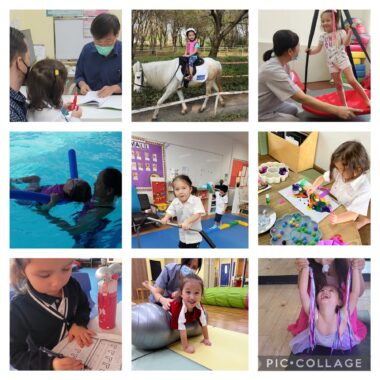When patient care coordination falls to the caregivers
A columnist highlights a troubling issue in the rare disease community
Written by |

Our daughter, Rylae-Ann, went through a diagnostic journey for eight months until we finally discovered, by chance, what she had. Even after learning she had the rare disease known as aromatic l-amino acid decarboxylase (AADC) deficiency, very little support was available to us. And yet our experience has been better than most in the rare disease community, who often go years before receiving a diagnosis — if they receive one at all.
Fortunately, my wife, Judy, and I had a background in education that supported us in making progress, and we were surrounded by people in academia who could provide guidance. Furthermore, we were blessed to have a support network and sufficient finances.
Even with all these blessings, Rylae-Ann was still reliant on the care we provided at home or that we were able to coordinate with various providers. This is a pervasive reality across the rare disease community.
If services are available, they must be coordinated
Even if services are available, they’re often isolated from one another. For example, we take our daughter to the hospital, various therapy appointments, and school. These are all different locations that function independently. They don’t communicate or coordinate a treatment plan for Rylae-Ann. My wife and I do all of that.
According to a Rare Disease UK report, the care and treatment that rare disease patients receive is often poorly coordinated. The organization believes that all patients deserve access to a designated care coordinator. It’s challenging and overwhelming to manage all the different components of care, which adds to the daily struggles of life with a rare disease.
Judy and I are often running around, shuttling our daughter to appointments, therapy, school, and hopefully some fun activities in between. We spend our limited downtime researching and connecting with doctors who have experience with our daughter’s disease. To call it overwhelming is an understatement, and I’m often worried about whether we’re making the right choices. The wrong choice could mean delayed care, loss of money, and no progress.
Our family is no exception. A 2020 survey conducted by Genetic Alliance UK found that the patient or caregiver coordinated the majority of care for 71% of respondents. Only 4% said they had a dedicated care coordinator. When caregivers or patients are tasked with this incredible endeavor, it results in a loss of treatment, progress, and health for those in the rare disease community.

A photo collage shows the different services that Rylae-Ann’s parents coordinate to support her fight against her rare disease. (Courtesy of Richard E. Poulin III)
No treatment meant putting our hope into a clinical trial
According to the National Organization for Rare Disorders, approximately 95% of the 7,000 known rare diseases have no authorized treatment. Many families, including ours, decide to enroll in clinical trials to help further research and have the chance to try experimental treatments.
Because we had no treatment options, we enrolled Rylae-Ann in a clinical trial for gene therapy. The results were miraculous.
Unfortunately, many in the rare disease community are left waiting. The majority of researchers aren’t studying rare diseases, and it seems most pharmaceutical companies are unwilling to risk the investment required to research and develop a drug for such a small population. We had to pay for our clinical trial experience and Rylae-Ann’s essential therapies out of pocket with no support from insurance.
Awareness is leading to changes
All is not bleak. The rare disease community lives with the aforementioned realities every day. However, each Rare Disease Day, observed on the last day of February, brings more awareness. Previously, my wife and I were listeners. Today, we work daily to help make a difference.
We established Teach RARE, a nonprofit organization that provides caregivers with free training on creating a lifestyle that combines educational activities with therapeutic goals. We attend regulatory hearings about the approval of gene therapy to share our parent perspective and help bring treatments to market. We continue to join clinical trials to support future treatments and contribute data to improve the diagnostic process.
We’re just one of many families making changes in the rare disease community. Open the events page on the Rare Disease Day website, and you’ll see entire communities of change-makers. Our shared frustrations, struggles, and pains have pushed us to go above and beyond what we thought was possible in our already stretched-thin lives. Despite all the statistics, we accomplish what others call the impossible.
The statistic we should all celebrate this Rare Disease Day is the number of individuals in our rare networks creating global change.
Note: AADC News is strictly a news and information website about the disease. It does not provide medical advice, diagnosis, or treatment. This content is not intended to be a substitute for professional medical advice, diagnosis, or treatment. Always seek the advice of your physician or other qualified health provider with any questions you may have regarding a medical condition. Never disregard professional medical advice or delay in seeking it because of something you have read on this website. The opinions expressed in this column are not those of AADC News or its parent company, Bionews, and are intended to spark discussion about issues pertaining to aromatic l-amino acid decarboxylase deficiency.







Leave a comment
Fill in the required fields to post. Your email address will not be published.